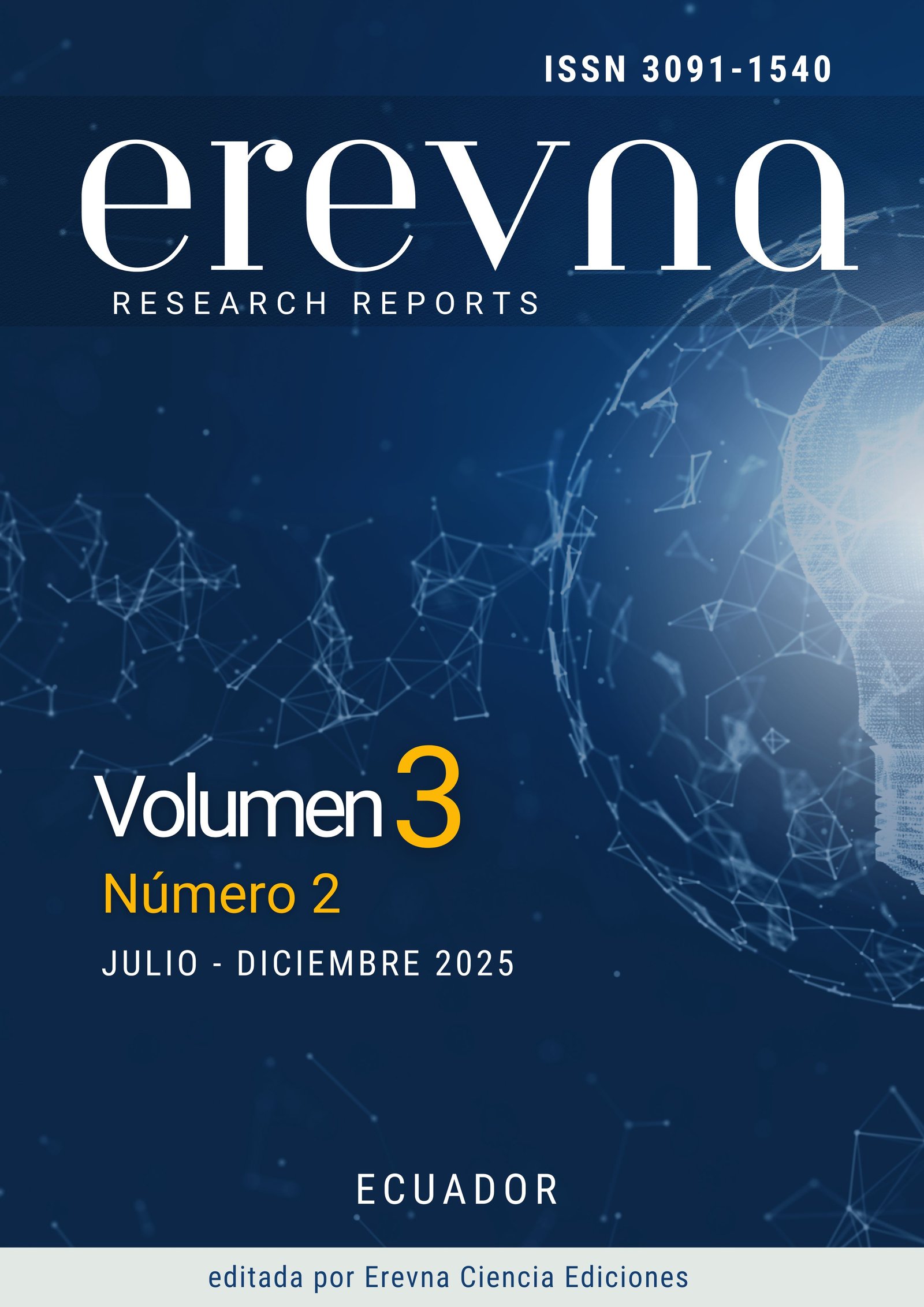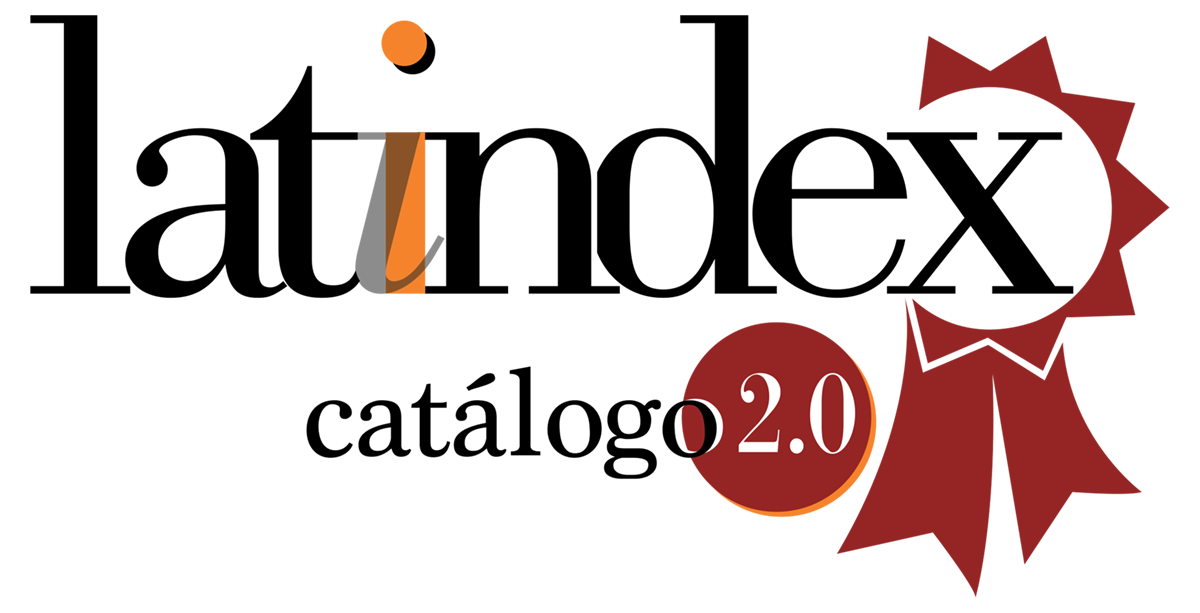Correlación entre Mecanismos de Afrontamiento y Trastorno por Consumo de Alcohol: Un Estudio en Población Clínica
DOI:
https://doi.org/10.70171/rgb51127Palabras clave:
afrontamiento del estrés, consumo de alcohol, mecanismo de afrontamiento, trastornos mentalesResumen
Justificación: el trastorno por consumo de alcohol en la población adulta constituye una problemática de salud pública relevante, debido a su alta prevalencia y al impacto negativo en la funcionalidad individual y social. Objetivo: este estudio tuvo como objetivo analizar la relación entre las estrategias de afrontamiento y el trastorno por consumo de alcohol en una muestra clínica de adultos. Metodología: se empleó un diseño analítico transversal, con un muestreo no probabilístico de tipo intencional, con personas mayores de 18 años que cumplieron criterios específicos de inclusión. Se aplicaron el Alcohol Use Disorders Identification Test (AUDIT) y el Cuestionario de Estrategias de Afrontamiento del Estrés, y se realizó un análisis estadístico mediante tablas de contingencia, estableciendo un nivel de significancia de 0,05. Resultados: los resultados evidenciaron que etipoatología de las estrategias de afrontamiento fueron la religión (55,1%), la expresión emocional abierta (37,8%) y la búsqueda de apoyo social (26,5%). Se identificó una relación estadísticamente significativa entre el trastorno por consumo de alcohol y el afrontamiento centrado en la solución del problema (p = 0.049), lo que aporta fundamentos para intervenciones terapéuticas basadas en enfoques cognitivo-conductuales. Conclusión: los hallazgos confirman que las estrategias de afrontamiento desempeñan un rol clave en la relación con el trastorno por consumo de alcohol.
Descargas
Referencias
Adasi, G., Amponsah, K., Mohammed, S., Yeboah, R., y Mintah, P. (2020). Gender Differences in Stressors and Coping Strategies Among Teacher Education Students at University of Ghana. Journal of Education and Learning, 9(2), 123-133. https://doi.org/10.5539/jel.v9n2p123
Ajan, R. A., Yew, W. C., y Awang, A. H. (2021). Influence of Social, Economic and Family Factors on Alcohol Consumption: A Systematic Review. Malaysian Journal of Social Sciences and Humanities (MJSSH), 6(12), 299-307. https://doi.org/10.47405/mjssh.v6i12.1218
American Psychological Association. (2024). Ethical Principles of Psychologists and Code of Conduct. https://www.apa.org/ethics/code
Bai, Z. (2021). Does frequent prayer help reduce alcohol use? Heterogeneity in religious contexts and drinking styles. Mental Health, Religion & Culture, 24(2), 151-163. https://doi.org/10.1080/13674676.2020.1826915
Betke, K., Basińska, M. A., y Andruszkiewicz, A. (2021). Sense of coherence and strategies for coping with stress among nurses. BMC Nursing, 20(107), 1-10. https://doi.org/10.1186/s12912-021-00631-1
Bianchi, D., Baiocco, R., Pompili, S., Lonigro, A., Di Norcia, A., Cannoni, E., Longobardi, E., Zammuto, M., Di Tata, D., y Laghi, F. (2022). Binge Eating and Binge Drinking in Emerging Adults During COVID-19 Lockdown in Italy: An Examination of Protective and Risk Factors. Emerging Adulthood, 10(1), 291-303. https://doi.org/10.1177/21676968211058501
Borrás Santiesteban, T. (2020). Prevención del consumo de bebidas alcohólicas. Editorial Universitaria.
Caricati, L., y Ferrari, D. (2021). Association between coping strategies and drug use in a large cohort of students from a northern Italian University. Acta Bio Medica : Atenei Parmensis, 92(4:e2021267), 1-12. https://doi.org/10.23750/abm.v92i4.11872
Chen, C., Mpinganjira, M. G., Motilal, A., Matukane, S., Letsoalo, R., McKee, T., Ntombela, Z., Mbulaheni, L., Hargovan, T., y Francis, J. M. (2023). Prevalence and correlates of alcohol use and risky drinking among undergraduate students in Johannesburg, South Africa: A cross-sectional study. BMC Psychiatry, 23(553), 1-10. https://doi.org/10.1186/s12888-023-05043-w
Chen, J., Li, Y., Zhang, Y., Feng, J., y Jia, L. (2022). Descriptive peer drinking norms and binge drinking: Enhancement motives as a mediator and alcohol resistance self-efficacy as a moderator. Frontiers in Psychology, 13(876274), 1-10. https://doi.org/10.3389/fpsyg.2022.876274
Ciccirillo, F., Abrignani, M. G., Temporelli, P. L., Binaghi, G., Cappelletto, C., Lopriore, V., Cesaro, A., Maloberti, A., Cozzoli, D., Riccio, C., Caldarola, P., Oliva, F., Gabrielli, D., y Colivicchi, F. (2023). The Key Role of a Psychoactive Substance Use History in Comprehensive Cardiovascular Risk Assessment, Diagnosis, Treatment, and Prevention. Cardiology, 148(3), 257-268. https://doi.org/10.1159/000530246
Conde, K., Giménez, P., Díaz-Castela, M., Ortega-Martínez, A., y Cremonte, M. (2020). Análisis intercultural del trastorno por uso de alcohol: Criterios diagnósticos en universitarios. Revista Argentina de Ciencias del Comportamiento, 12(2), 1-10. https://www.redalyc.org/journal/3334/333468469002/333468469002.pdf
Denham, A. N., Drake, J., Gavrilov, M., Taylor, Z. N., Bacanu, S.-A., y Vladimirov, V. I. (2022). Long Non-Coding RNAs: The New Frontier into Understanding the Etiology of Alcohol Use Disorder. Non-Coding RNA, 8(4:59), 1-15. https://doi.org/10.3390/ncrna8040059
Finn, S. W., Mejldal, A., y Nielsen, A. S. (2023). Perceived barriers to seeking treatment for alcohol use disorders among the general Danish population – a cross sectional study on the role of severity of alcohol use and gender. Archives of Public Health, 81(65), 1-9. https://doi.org/10.1186/s13690-023-01085-4
González, H., Giersiepen, J., y Hernández, J. (2021). Methanol in Mezcal: Is it Possible to Increase the Current Thresholds Allowed by Mexican Standards? Revista RIVAR, 8(24), 56-75. https://doi.org/10.35588/rivar.v8i24.4886
Gorane, S., y Mali, S. (2022). A Review on Effect of Alcohol on Liver. International Journal of Research Publication and Reviews, 3(11), 2759-2770. https://ijrpr.com/uploads/V3ISSUE11/IJRPR8182.pdf
Guasti, N., y Rodríguez, M. (2023). Estrategias de afrontamiento y consumo de alcohol en adultos. LATAM Revista Latinoamericana de Ciencias Sociales y Humanidades, 4(1), 882-893. https://doi.org/10.56712/latam.v4i1.303
Guimarães, M. O., Guimarães, G. D. L., Silva, J. W. R. D., Souza, K. K. B. D., Vieira-Andrade, R. G., Ferreira, R. C., y Zarzar, P. M. P. D. A. (2022). Does religiosity impact binge drinking among early adolescents? A cross-sectional study in a city in Southeastern Brazil. Ciência & Saúde Coletiva, 27(9), 3669-3678. https://doi.org/10.1590/1413-81232022279.03162022
Hernández-Sampieri, R., Fernández-Collado, C., y Baptista-Lucio, P. (2014). Metodología de la Investigación (6ta Edición). McGRAW-HILL
Higgins-Biddle, J. C., y Babor, T. F. (2018). A review of the Alcohol Use Disorders Identification Test (AUDIT), AUDIT-C, and USAUDIT for screening in the United States: Past issues and future directions. The American Journal of Drug and Alcohol Abuse, 44(6), 578-586. https://doi.org/10.1080/00952990.2018.1456545
IBM. (2022). IBM SPSS Statistics (Versión 28) [Software]. IBM Corp. https://www.ibm.com/es-es/products/spss-statistics
Invine, S. (2022). Harmful drinking and alcohol dependence. InnovAiT: Education and Inspiration for General Practice, 15(1), 33-39. https://doi.org/10.1177/17557380211053031
Khantzian, E. J. (1997). The self-medication hypothesis of substance use disorders: A reconsideration and recent applications. Harvard review of psychiatry, 4(5), 231-244. https://doi.org/10.3109/10673229709030550
Knettel, B. A., Cherenack, E. M., Rougier-Chapman, C., y Bianchi-Rossi, C. (2023). Examining Associations of Coping Strategies with Stress, Alcohol, and Substance use among College Athletes: Implications for Improving Athlete Coping. Journal of Intercollegiate Sport, 16(2), Article 2. https://doi.org/10.17161/jis.v16i2.18397
Lazarus, R. S., y Folkman, S. (1984). Stress, appraisal, and coping. Springer.
Loayza-Rivas, J. (2021). Felicidad, emociones positivas, evaluación cognitiva y afrontamiento en estudiantes universitarios de Lima Metropolitana. Actualidades en Psicología, 35(130), 35-48. https://doi.org/10.15517/ap.v35i130.37198
Lunnay, B., Nicholls, E., Pennay, A., MacLean, S., Wilson, C., Meyer, S. B., Foley, K., Warin, M., Olver, I., y Ward, P. R. (2022). Sober Curiosity: A Qualitative Study Exploring Women’s Preparedness to Reduce Alcohol by Social Class. International Journal of Environmental Research and Public Health, 19(22:14788), 1-17. https://doi.org/10.3390/ijerph192214788
Marín, M., Horcajadas, F., López-Trabada, J., y Rubio, G. (2019). Trastornos por consumo de alcohol. Medicine, 12(85), 4993-5003. https://dialnet.unirioja.es/servlet/articulo?codigo=7056440
Medina Mora, M. E. (2019). Trastornos por consumo de alcohol y la CIE 11 -María Elena Mora. Organización Panamericana de la Salud (OPS). https://www.paho.org/es/documentos/trastornos-por-consumo-alcohol-cie-11-maria-elena-mora
Melo, A. J., Rocha, J. A., Carvalho, M. M. D., Yoshioka, F. K., Pinto, G. R., Motta, F. J. N., y Canalle, R. (2022). Allelic variations in alcohol metabolism genes (ADH1B, ADH1C, CYP2E1) and alcohol use disorder (AUD) in northeastern Brazil. Research, Society and Development, 11(13), 1-16. https://doi.org/10.33448/rsd-v11i13.35486
Meza, W., y Quimi, G. (2021). Estrategias de afrontamiento en adultos consumidores frecuentes de alcohol frente a restricciones impuestas en Guayaquil como medidas preventivas de COVID-19 [Tesis de Maestría, Universidad de Guayaquil]. https://repositorio.ug.edu.ec/items/4e04752a-b856-4159-98ab-a840e1c4e0e4/full
Mmereki, B., Mathibe, M., Cele, L., y Modjadji, P. (2022). Risk factors for alcohol use among adolescents: The context of township high schools in Tshwane, South Africa. Frontiers in Public Health, 10(969053), 1-13. https://doi.org/10.3389/fpubh.2022.969053
Montal-Rosenberg, R., Bamberger, P. A., Nahum-Shani, I., Wang, M., Larimer, M., y Bacharach, S. B. (2023). Supervisor Undermining, Social Isolation and Subordinates’ Problematic Drinking: The Role of Depression and Perceived Drinking Norms. Journal of Drug Issues, 53(1), 37-60. https://doi.org/10.1177/00220426221098981
Neufeld, A., y Malin, G. (2021). How medical students cope with stress: A cross-sectional look at strategies and their sociodemographic antecedents. BMC Medical Education, 21(299), 1-12. https://doi.org/10.1186/s12909-021-02734-4
OMS. (2021). Plan de Acción Mundial sobre el Alcohol 2022-2030 con el fin de fortalecer la aplicación de la Estrategia Mundial para Reducir el Uso Nocivo del Alcohol (Plan de Acción Primer proyecto; p. 41). Organización Mundial de la Salud. https://cdn.who.int/media/docs/default-source/alcohol/alcohol-action-plan/first-draft/global-alcohol-action_plan_first_draft_es.pdf?sfvrsn=59817c21_5
Onyishi, C. N., Eseadi, C., Ilechukwu, L. C., Okoro, K. N., Okolie, C. N., Egbule, E., y Asogwa, E. (2022). Potential influences of religiosity and religious coping strategies on people with diabetes. World Journal of Clinical Cases, 10(25), 8816-8826. https://doi.org/10.12998/wjcc.v10.i25.8816
OPS. (2021). Informe sobre la situación del alcohol y la salud en la Región de las Américas 2020. Organización Panamericana de la Salud (OPS). https://doi.org/10.37774/9789275322215
Papalia, D. E., Feldman, R. D., y Martorell, G. (2012). Desarrollo humano. Mc Graw Hill Education.
Park, S. H., y Kim, D. J. (2020). Global and regional impacts of alcohol use on public health: Emphasis on alcohol policies. Clinical and Molecular Hepatology, 26(4), 652-661. https://doi.org/10.3350/cmh.2020.0160
Pollard, M. S., Tucker, J. S., y Green, H. D. (2020). Changes in Adult Alcohol Use and Consequences During the COVID-19 Pandemic in the US. JAMA Network Open, 3(9:e2022942), 1-7. https://doi.org/10.1001/jamanetworkopen.2020.22942
Pramaunururut, P., Anuntakulnathee, P., Wangroongsarb, P., Vongchansathapat, T., Romsaithong, K., Rangwanich, J., Nukaeow, N., Chansaenwilai, P., Greeviroj, P., Worawitrattanakul, P., Rojanaprapai, P., Tantisirirux, V., Thakhampaeng, P., Rattanasumawong, W., Rangsin, R., Mungthin, M., y Sakboonyarat, B. (2022). Alcohol consumption and its associated factors among adolescents in a rural community in central Thailand: A mixed-methods study. Scientific Reports, 12(19605), 1-13. https://doi.org/10.1038/s41598-022-24243-0
Ray, A., Ninave, S., Patil, P. S., Ninave, S., y Khan, T. (2023). Assessing the Behavioral and Personality Changes in Alcohol Dependence Syndrome in Wardha, Central India. Cureus, 7(15), 1-11. https://doi.org/10.7759/cureus.48419
Rivera-Irizarry, J. K., Zallar, L. J., Levine, O. B., Skelly, M. J., Boyce, J. E., Barney, T., Kopyto, R., y Pleil, K. E. (2023). Sex differences in binge alcohol drinking and the behavioral consequences of protracted abstinence in C57BL/6J mice. Biology of Sex Differences, 14(83), 1-20. https://doi.org/10.1186/s13293-023-00565-0
Rodríguez De La Cruz, P. J., González-Angulo, P., Salazar-Mendoza, J., Camacho-Martínez, J. U., y López-Cocotle, J. J. (2022). Percepción de riesgo de consumo de alcohol y tabaco en universitarios del área de salud. SANUS, 7(e222), 1-16. https://doi.org/10.36789/revsanus.vi1.222
Rodríguez, L. A., y Bonilla, G. E. (2021). Utilización del test de AUDIT para medir el Consumo de Alcohol en los trabajadores del Gobierno Autónomo Descentralizado de Chimborazo. Polo del Conocimiento, 6(11), 1322-1335. http://dx.doi.org/10.23857/pc.v6i11.3330
Saavedra Espinosa, J. N., Rodríguez Malagón, M. Y., Londoño Granados, S. P., Alméziga Clavijo, O. S., Garzón Herrera, M. C., y Díaz-Heredia, L. P. (2021). Barriers and Facilitators that Influence on Adopting Healthy Lifestyles in People with Cardiovascular Disease. Investigación y Educación en Enfermería, 39(3:e04), 1-12. https://doi.org/10.17533/udea.iee.v39n3e04
Sarango-Ortega, R. S. (2021). Habilidades de afrontamiento para la conducta de beber (HACB). Como tratamiento para el alcoholismo. Revista Científica Arbitrada en Investigaciones de la Salud GESTAR, 4(8), 315-323. https://doi.org/10.46296/gt.v4i8edesp.0049
Sasso, A., Hernández-Alava, M., Holmes, J., Field, M., Angus, C., y Meier, P. (2022). Strategies to cut down drinking, alcohol consumption, and usual drinking frequency: Evidence from a British online market research survey. Social Science & Medicine, 310(115280), 1-9. https://doi.org/10.1016/j.socscimed.2022.115280
Schetsche, C., Jaume, L. C., y Azzollini, S. C. (2022). Desarrollo de una versión breve del Coping Strategies Inventory. Revista Evaluar, 22(1), 1-16. https://doi.org/10.35670/1667-4545.v22.n1.37412
Shuai, R., Bravo, A. J., Anker, J. J., Kushner, M. G., y Hogarth, L. (2022). The direct effect of drinking to cope on alcohol problems is not mediated by alcohol consumption: Invariance across gender and countries. Addictive Behaviors Reports, 16(100469). https://doi.org/10.1016/j.abrep.2022.100469
Stanojlović, M., y Davidson, L. (2021). Targeting the Barriers in the Substance Use Disorder Continuum of Care With Peer Recovery Support. Substance Abuse: Research and Treatment, 15(117822182097698). https://doi.org/10.1177/1178221820976988
Stefaniak, A. R., Blaxton, J. M., y Bergeman, C. S. (2022). Age Differences in Types and Perceptions of Daily Stress. The International Journal of Aging and Human Development, 94(2), 215-233. https://doi.org/10.1177/00914150211001588
Threet, C., Tan, R., y Serafica, R. (2023). Navigating Alcohol Use Disorder in Adults: A Case Report. The Journal for Nurse Practitioners, 19(9:104721), 1-7. https://doi.org/10.1016/j.nurpra.2023.104721
Tous-Pallarés, J., Espinoza-Díaz, I. M., Lucas-Mangas, S., Valdivieso-León, L., y Gómez-Romero, M. D. R. (2022). CSI-SF: Psychometric properties of spanish version of the coping strategies inventory - short form. Anales de Psicología, 38(1), 85-92. https://doi.org/10.6018/analesps.478671
Tsermpini, E. E., Plemenitaš Ilješ, A., y Dolžan, V. (2022). Alcohol-Induced Oxidative Stress and the Role of Antioxidants in Alcohol Use Disorder: A Systematic Review. Antioxidants, 11(7:1374), 1-33. https://doi.org/10.3390/antiox11071374
Villanueva-Blasco, V. J., Mateu-Mollá, J., Villanueva-Silvestre, V., y Vázquez-Martínez, A. (2022). Relationship Between Depression and Risky Alcohol Consumption in Women: The Mediating Role of Coping Styles and Age. International Journal of Mental Health and Addiction, 12(931), 1-18. https://doi.org/10.1007/s11469-022-00931-w
White, A. (2020). Gender Differences in the Epidemiology of Alcohol Use and Related Harms in the United States. Alcohol Research: Current Reviews, 40(2), 1-13. https://doi.org/10.35946/arcr.v40.2.01
Wittgens, C., Muehlhan, M., Kräplin, A., Wolff, M., y Trautmann, S. (2022). Underlying mechanisms in the relationship between stress and alcohol consumption in regular and risky drinkers (MESA): Methods and design of a randomized laboratory study. BMC Psychology, 10(233), 1-13. https://doi.org/10.1186/s40359-022-00942-1
Yang, J., Lin, L., Gao, Y., Wang, W., y Yuan, L. (2022). Interventions and strategies to improve social support for caregivers of children with chronic diseases: An umbrella review. Frontiers in Psychiatry, 13(973012). https://doi.org/10.3389/fpsyt.2022.973012
Zipperer, L., Ryan, R., y Jones, B. (2022). Alcoholism and American healthcare: The case for a patient safety approach. Journal of Patient Safety and Risk Management, 27(5), 201-208. https://doi.org/10.1177/25160435221117952
Publicado
Número
Sección
Categorías
Licencia
Derechos de autor 2025 Jose Santos-Morocho, Liliana Toral-León, William Ortiz-Ochoa , Marco Muñoz-Pauta , Rómulo Jiménez-Herrera , Mariela Torres-Vallejo (Autor/a)

Esta obra está bajo una licencia internacional Creative Commons Atribución-NoComercial-CompartirIgual 4.0.






















